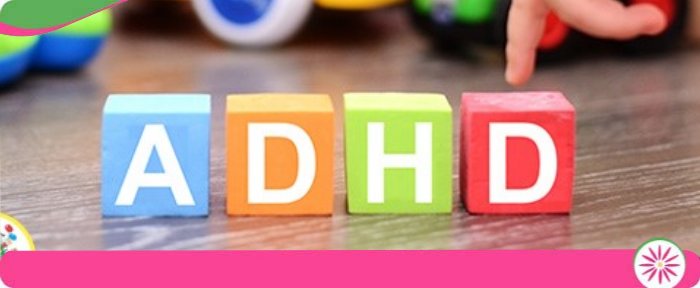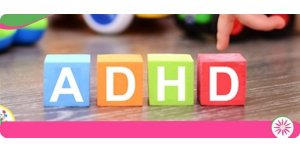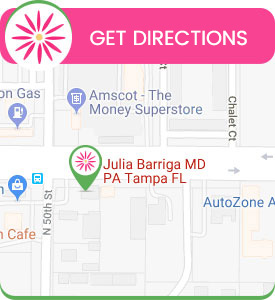ADHD/Behavioral Problems Assessment Clinic in Tampa, FL
Are you unsure as to whether or not your child may have behavioral problems? At Julia Barriga, MD, PA, Dr. Julia B. Barriga, MD, offers comprehensive ADHD and behavioral problem assessments. Trust our trained professionals today by scheduling an appointment online or contact us for more information. We are conveniently located at 5001 East Busch Blvd Tampa, FL 33617.


Table of Contents:
Does ADHD affect your behavior?
Which behavior is a symptom of ADHD?
How do I get my child assessed for behavioral problems?
Focus and attention are crucial aspects of learning and listening. When children do not listen, it can be very frustrating. It’s not only important to remember to do their chores, but also to remember potentially life-saving lessons, like watching for cars when crossing the street. If you believe your child is suffering from ADHD, continue reading this article to learn more.
The most commonly known problems in children with ADHD are aggressive and defiant behavior. This includes refusing to follow directions given by parents or teachers. When asked to do things they find challenging, kids may have emotional outbursts.
Children afflicted with ADHD tend to become defiant in some situations. These situations include being expected to do things like stop playing a game, do homework, go to bed, sit down, and eat dinner. These situations are difficult for them to tolerate due to the deficits that accompany ADHD. These include:
• Paying attention
• Tolerating a boring situation
• Reining in impulses
• Transitioning from a fun activity
• Controlling their activity level
The symptoms of ADHD include hyperactive-impulsive behavior and inattention. Symptoms start before age 12 and are even noticeable as early as 3 years old. ADHD can be mild, moderate, or severe, and symptoms may continue well into adulthood.
ADHD occurs more often in males than in females, and behaviors can be different in boys and girls. For example, girls may tend to be inattentive and boys may be more hyperactive.
There are three subtypes of ADHD:
• Predominantly inattentive – This means the majority of symptoms fall under the inability to pay attention.
• Predominantly hyperactive/impulsive – This means the majority of symptoms are impulsive and hyperactive.
• Combined – This means this is a mix of hyperactive/impulsive symptoms and inattentive symptoms.
Inattention:
A child who shows patterns of inattention may exhibit the below:
• Make careless mistakes in schoolwork or fail to pay close attention
• Have trouble staying focused on tasks or play
• Not listen, even when spoken to directly
• Fail to finish schoolwork or chores and have difficulty following through on instructions
•Have trouble organizing activities and tasks
• Dislike or avoid activities that require focused mental effort
• Lose items needed for tasks, for example, school assignments, toys, pencils
• Be easily distracted
Hyperactivity and impulsivity:
A child who shows patterns of impulsive and hyperactive symptoms may exhibit the below:
• Fidget with or tap their feet and hands, or squirm while seated
• Find it difficult to remain seated in the classroom or other situations
• Be on the go, in constant motion
• Climb things or run around in inappropriate situations
• Have issues with doing an activity or playing quietly
• Talk too much
• Blurt out answers, interrupting the questioner
• Find it difficult to wait their turn
• Interrupt or intrude on others’ conversations, games, or activities
ADHD looks different in every person, so there is a wide array of criteria to help health professionals reach a diagnosis. It is important to be open and honest during your evaluation with the specialist so that they can reach an accurate conclusion.
To receive ADHD as a diagnosis, your child must display a combination of strong ADHD symptoms, namely inattention, hyperactivity, or impulsivity. The mental health professional assessing the problem will also look at the following factors:
To be diagnosed with ADHD, the symptoms must have a negative impact on you or your child’s life. In general, people who truly have ADHD have major problems in one or more areas of their life, such as their finances, career, or family responsibilities.
Since ADHD starts in childhood, the doctor will look at how early the symptoms begin to appear.
How long have the symptoms been bothering you or your child? Symptoms must have been going on for at least 6 months before ADHD can be diagnosed.
When and where do the symptoms appear? The symptoms of ADHD must be present in multiple settings, such as at home and school. If the symptoms only appear in one environment, it is unlikely that ADHD is to blame.
If your child is experiencing difficulty listening and focusing, contact our office today to get in touch with a specialist. To book an appointment, contact us or visit us online! We are conveniently located at 5001 East Busch Blvd Tampa, FL 33617. We serve patients from Tampa FL, Thonotosassa FL, Lutz FL, Greater Carrollwood FL, Lake Magdalene FL, Westchase FL, and surrounding areas.
Check Out Our 5 Star Reviews


Additional Services We Offer
- Dental Fluoride Varnish
- Newborn Care
- Vaccines/Immunizations
- Health Education & Counseling
- Physical Examinations
- Hearing & Vision Screening
- Management of Chronic Conditions
- Comprehensive Well Visits
- Asthma Management
- Diabetes Management
- ADD/ADHD Management
- Diagnostic Services
- Ear Piercing
- Prenatal Consults
- In House Lab Testing
- Get Acquainted Consults
- Covid Testing
- Flu Testing
- RSV Testing








